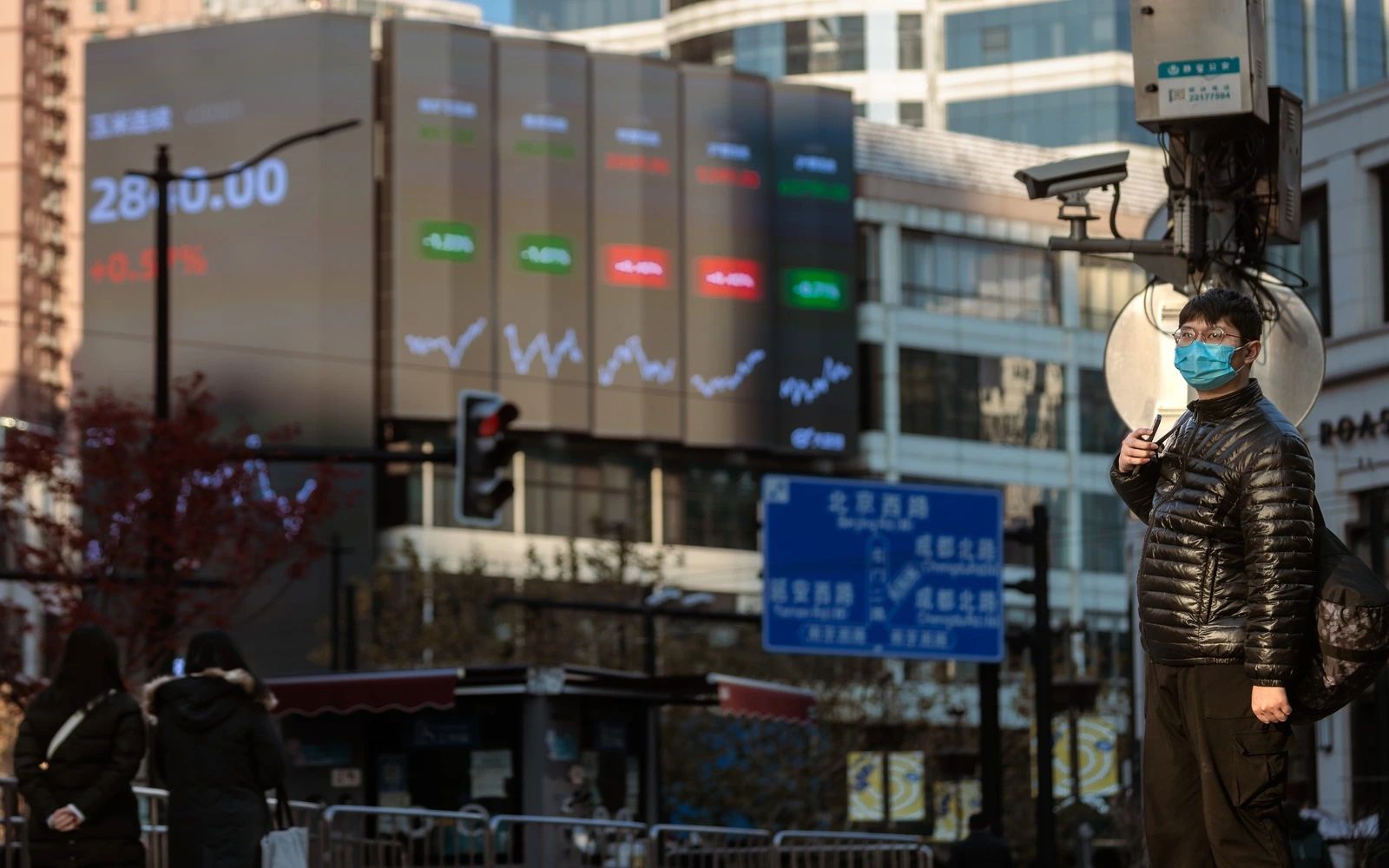
Chinese stocks end week lower as investors lock in gains after trade truce

Chinese stocks ended the week lower, paring earlier gains, after touching a decade-high this week, as investors booked profits following a US-China trade truce and shifted their focus to domestic corporate earnings and economic fundamentals.
US President Donald Trump said on Thursday he had agreed with President Xi Jinping to trim tariffs on China in exchange for Beijing cracking down on the illicit fentanyl trade, resuming US soybean purchases and keeping rare-earths exports flowing.
The blue-chip CSI300 Index closed 1.5% down on Friday, while the Shanghai Composite Index lost 0.8%. Hong Kong benchmark Hang Seng was down 1.4%.
“The kind of reaction has become of a habit in China’s stock market: good news comes out, and prices dip,” said Zeng Wenkai, chief investment officer at Shengqi Asset Management Co.
“Still, we’re staying positive. The 4,000-point level might get tested a few more times, but the overall trend is still pointing up.”
The benchmark Shanghai Composite Index rose above the psychologically-significant 4,000 level for the first time in 10 years this week, after US and China officials hinted a trade framework last Sunday that buoyed sentiment.
The CSI300 Index was down 0.4% this week, while the Hong Kong Index was down 0.8%.
For October, Hong Kong stocks underperformed their mainland peers, dropping more than 3% and marking their first monthly decline since April.
“This (US-China) is a pause button deal, not a reset button: it helps repair market sentiment and eases tariff burdens on the real economy, but it doesn’t signal a turn in structural tech decoupling,” said Li Hao, research director at Beijing-based Cypress Fund.
As major domestic policy meetings and key overseas dialogues have now concluded, the near-term geopolitical calendar appears quiet and market focus may shift back to fundamentals, Li said.
“The current bull market has been driven by the global rate-cutting cycle and advances in technology. Both remain intact — especially liquidity conditions — suggesting the rally still has room to run.”
The CSI300 Index is up nearly 20% this year, set to log its best annual run since 2020.
The yuan on Friday looked poised to mark a third consecutive monthly gain, albeit by a slim margin of 0.1%.
Meanwhile, China’s factory activity shrank for a seventh month in October, an official survey showed on Friday, keeping alive calls for further stimulus to boost domestic demand, with efforts to ship goods abroad merely exporting price wars.
Profit-taking continued in AI-related themes, with the STAR50 Index and semiconductor shares down 3.1% and 3.6%, respectively. Tech majors traded in Hong Kong were down 2.4%.
China’s battery thematic index rose as much as 4%, after the country rolled back planned export controls on battery materials as part of the US-China trade truce.
Once-favored liquor shares rebounded 1.7% after Laojiao posted better-than-expected earnings results.